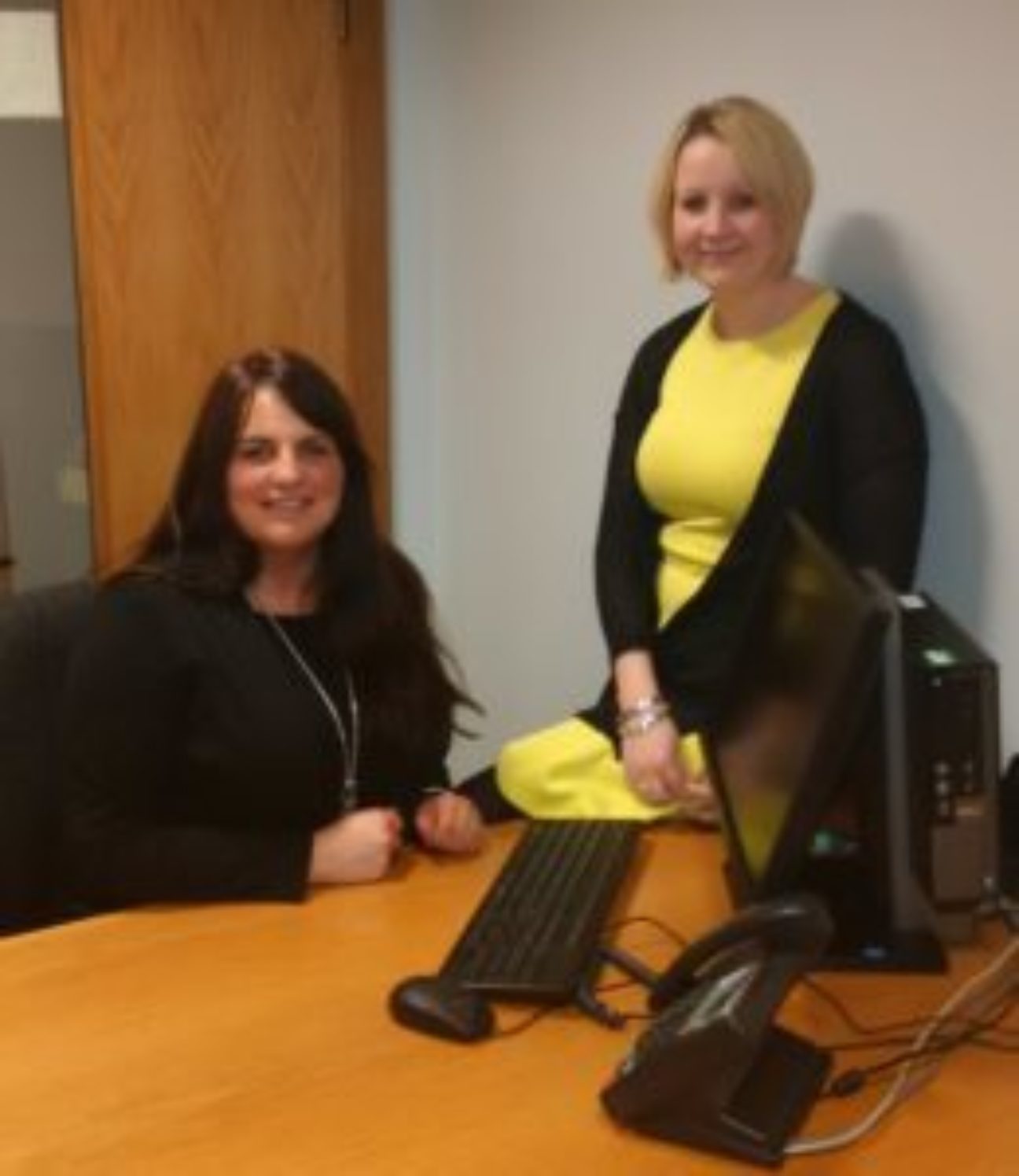
Ruth Kelly and Caroline Durham
Ruth Kelly and Caroline Durham are two Simon Community NI team members who are currently working alongside the Northern Ireland Housing Executive Housing Solutions team as part of a project to improve homelessness prevention and avoid time spent in temporary accommodation where possible. They both have worked with Simon Community NI for over five years and their stories show that a job with Simon Community NI can mean a life-long career.
Caroline: I completed a placement in Simon Community NI’s Conway Court as part of my Social Work degree in 2007 and immediately knew I wanted to work in the homeless sector. I felt a real desire to work with individuals and families that were homeless or facing homelessness and so I applied for a Support Worker post when I finished my degree in 2011. I initially worked with young people aged 17-26 and really enjoyed the challenges that this brought. In 2013, I took on a Team Leader role managing an Accommodation Project on the Falls Road. I feel honoured to have worked with the clients that came through the doors of this Project. They have taught me humility, kindness and empathy, and I am passionate about using the qualities that they show daily, throughout the homelessness sector in Northern Ireland. Within my new role as a Floating Support Coordinator, I am fortunate to work with some of the leading charities and organisations including the Northern Ireland Housing Executive in order to maximise clients’ opportunities to move on positively, by providing creative solutions, creating organisational partnerships and building on existing relationships.
Ruth: I joined Simon Community Northern Ireland in 2010 as an Accommodation and Community Support Worker after working with another Homeless Organisation in Belfast for over a year. Having built a career within Estate Agency, I worked daily with individuals and families that so often were experiencing difficulties forcing them to sell or move home. I soon realised that my motivation was focused more on helping with the causal issues, than selling the property. This brought about the desire to change career and move into the voluntary sector. I have always felt compassion for those experiencing homelessness and a strong desire to make a difference for those considered the most vulnerable in society. In 2012, I joined the team at 414 Falls Road as Team Leader. While I thoroughly enjoyed the challenge of managing a project and supporting a team, I recognised that I wanted to return to working on a one-to-one basis with clients. I joined the Harm Reduction team in 2013, supporting clients struggling with substance misuse and addiction. Working with these clients made it clear that environmental issues within temporary accommodation seriously impacted their ability to reduce or abstain from substance misuse. When the position within Homeless Prevention became available, I was excited to take on a new challenge with the objective of moving clients to more appropriate accommodation and reducing the time spent living in temporary accommodation.
A Day in the Life of a Support Worker
As a Support Worker, you will work in a shift pattern based on a rota which is prepared a few weeks in advance, allowing your work and personal life to be planned. The shifts include early (8.30am-18.30pm), late (12noon-22.00pm) and night work (20.45pm-9.15am) and you will normally work an average of 35 hours per week.
You will work with males and females aged between 17 and 65 within one of our Accommodation Projects. All the clients on project are homeless thus residing in temporary hostel accommodation, and they will each have individual reasons for being homeless. The most common reasons appear to be family conflict/relationship breakdowns, substance abuse/addictions and mental health issues.
General daily duties include health and safety checks of the building and administrative duties, e.g. answering the telephone, updating records, ensuring service charges are paid and reminding clients of appointments.
You will be allocated responsibility for specific client files, although you will work with all clients. You will be required to support clients by liaising with the Housing Executive for a breakdown of housing points and writing support letters to increase them. Some clients will also require the support of other services such as counsellors for mental health or addiction issues, you will therefore have to complete referrals and interact with the agency for progress updates.
Working as a team is vital to ensure that staff and clients are supported. It also encourages strong communication to ensure that all client needs are being met to enable them to progress and develop towards independent living. It is extremely useful to develop a support network in the local community to help support the organisation and the needs of the clients regarding referrals, information or fundraising events.
Life as a Support Worker is very challenging, quite often you will deal with difficult behaviour and incidents. This covers a wide spectrum including trying to calm someone who is extremely vocal and abusive, to dealing with self harm and suicide attempts. While at times the work can be difficult it is also very rewarding, especially when a positive noticeable change can be seen in clients compared to when they first entered the Accommodation Project.